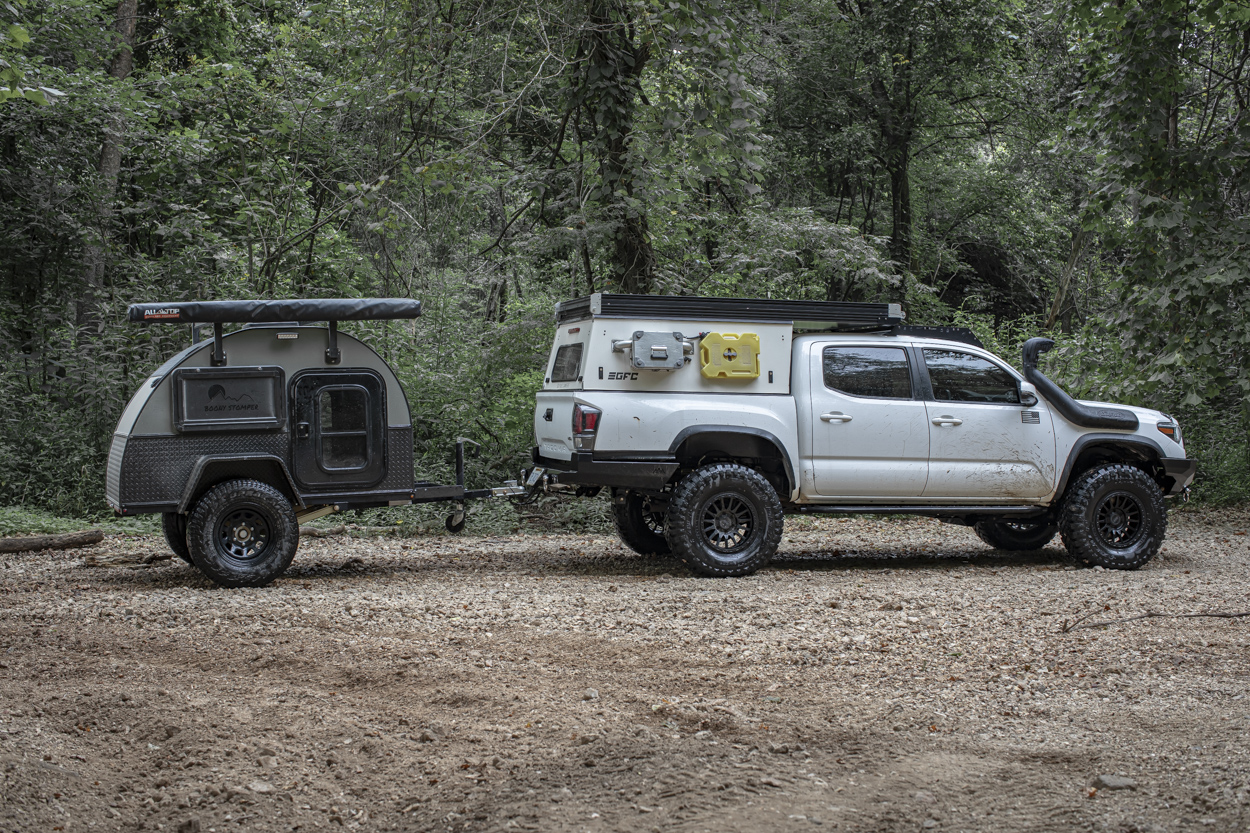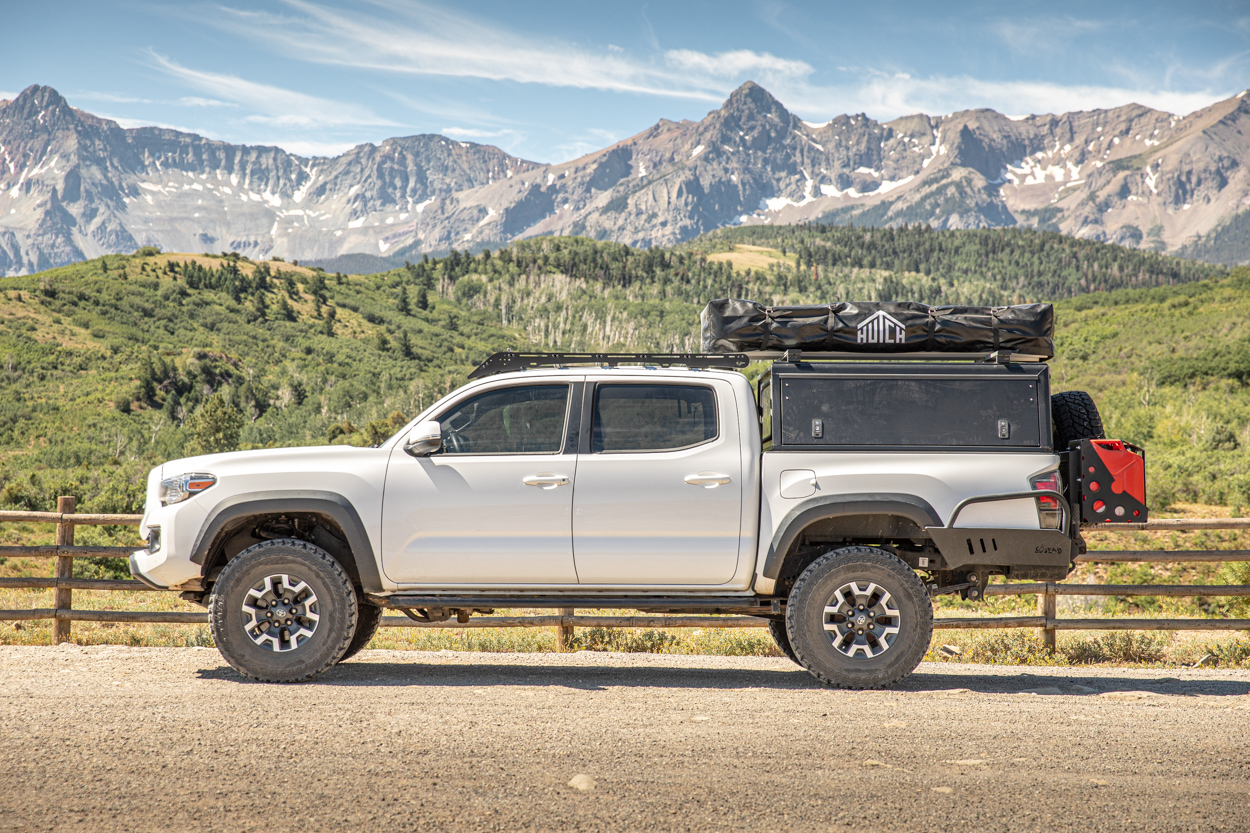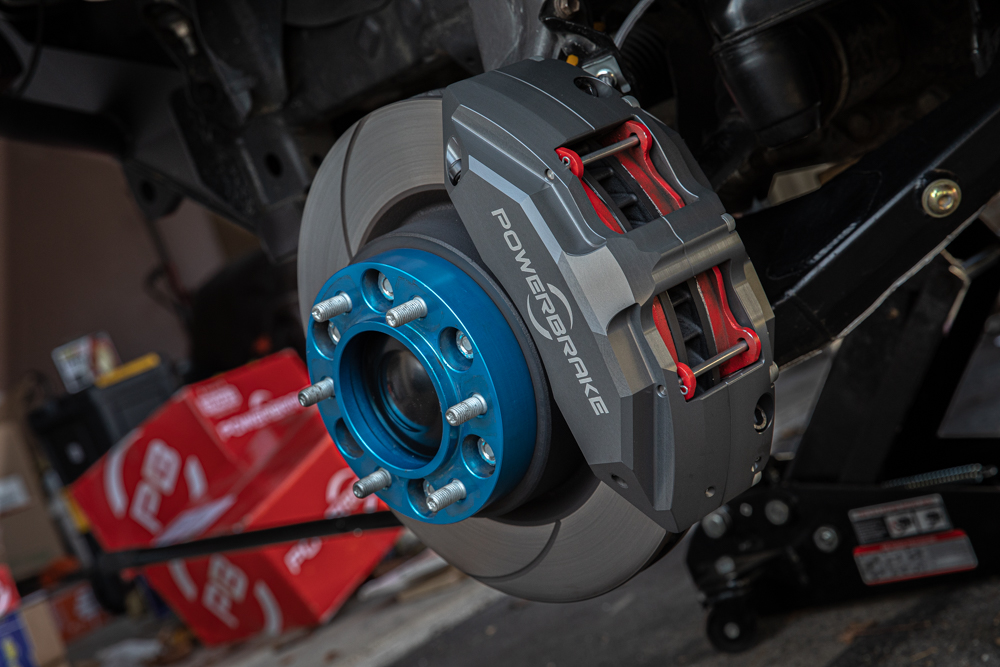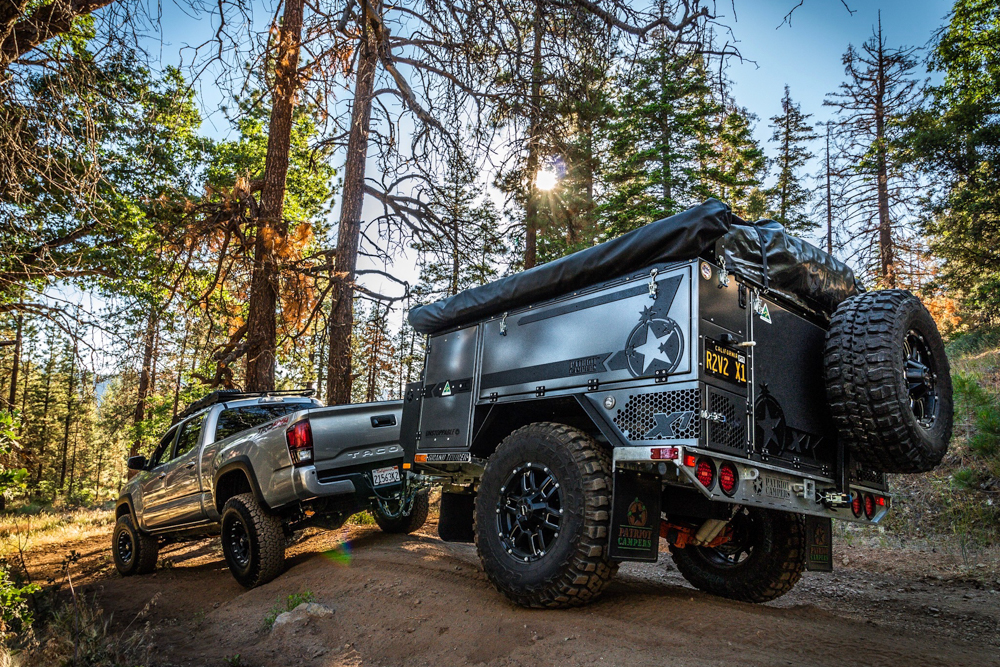
Are you getting ready to tow a trailer a boat, or otherwise with your 2016-2023 Tacoma? Before you hit the road, there is some critical information you need to know about its towing capabilities. Understanding these factors not only ensures everyone’s safety but also helps you select an appropriate trailer for your trip.
The Tacoma might not be the first truck you think about when it comes to hauling a load, but there’s a reason this mid-size truck is so popular. It’s extremely versatile, reliable, and does well for it’s smaller size.
Here’s a quick guide covering everything you need to get started!
Table Of Contents
What Is Tow Capacity?

Tow capacity is how much a vehicle can safely tow. That number is for the trailer’s weight and what’s in it. Knowing your tow capacity is incredibly important, as exceeding this limit can cause significant safety risks and strain on the vehicle’s components.
Tow Capacity Vs. Payload

Understanding the capabilities of your Toyota Tacoma involves grasping two critical concepts: tow capacity and payload. These are each essential for different aspects of hauling.
Tow capacity is the maximum weight you can safely tow behind your Tacoma. Payload refers to the weight your Tacoma can carry within its cabin and bed (aka over the wheels). Both are important to consider when hauling things to ensure you’re operating within safe limits.
Tacoma Tow Package
If you have a V6 in your Tacoma, you can upgrade to the Tacoma Tow Package. This increases your capacity to 6,800 pounds and payload to 1,685 pounds.
The tow package includes:
- Class-IV towing receiver hitch
- ATF Cooler (Automatic only)
- Engine Oil Cooler
- Power Steering Cooler
- 130-amp Alternator
- 4- and 7-pin Connector with Converter
- Trailer-Sway Control (applies brake pressure at individual wheels and manages engine torque to help maintain control of the trailer)
A related topic, you might also want to consider Gross Vehicle Weight Rating (GVWR). Check out this GVWR calculator!
What Affects These Numbers

Depending on your Tacoma’s configuration and trim level, tow capacity and payload can vary.
Bed Size
The size of your bed can impact both payload capacity and towing performance. A larger bed (6 ft) provides more space for cargo but also adds weight, thus slightly lowering the capacity. On the other hand, a smaller bed (5 ft) will limit payload capacity but slightly increase tow capacity.
Engine Type
The Tacoma comes standard with a 2.7L I4 or a 3.5L V6 engine depending on the trim level. The latter offers higher towing capacities due to the increased horsepower and torque compared to the smaller engine.
2WD vs. 4WD
While both configurations can tow significant loads, 4WD models often offer enhanced traction and stability, especially in off-road or adverse weather conditions.
Tow Capacity Chart
|
Engine Configuration |
2.7L I4 |
2.7L I4 |
3.5L V6 |
3.5L V6 |
|
Drive Configuration |
2WD |
4WD |
2WD |
4WD |
|
Access Cab |
3,500 |
3,500 |
6,800 |
6,500 |
|
Double Cab Short Bed |
3,500 |
– |
6,700 |
6,400 |
|
Double Cab Long Bed |
– |
– |
6,600 |
6,400 |
Payload Chart
| Engine | Drivetrain | Cab/Bed Length | GVWR | Payload |
| I4 2.7L | 2WD | Access/6 ft | 5,600 lbs | 1,685 lbs |
| I4 2.7L | 2WD | Double/5 ft | 5,600 lbs | 1,445 lbs |
| V6 3.5L | 2WD | Access/6 ft | 5,600 lbs | 1,395 lbs |
| V6 3.5L | 2WD | Double/5 ft | 5,600 lbs | 1,395 lbs |
| I4 2.7L | 4WD | Access/6 ft | 5,600 lbs | 1,445 lbs |
| V6 3.5L | 4WD | Access/6 ft | 5,600 lbs | 1,285 lbs |
| V6 3.5L | 4WD | Double/5 ft | 5,600 lbs | 1,135 lbs |
| V6 3.5L | 4WD | Access/6 ft | 5,600 lbs | 1,155 lbs |
| V6 3.5L | 4WD | Double/5 ft | 5,600 lbs | 1,155 lbs |
| V6 3.5L | 4WD | Double/6 ft | 5,600 lbs | 1,155 lbs |
Towing Upgrades

If you’re considering towing heavier loads, it’s worth considering some upgrades to make the job easier and safer.
Note: You should never exceed the manufacturer’s recommended towing capacity.
Weight Distributing Hitch System
This helps even out the weight that your vehicle is towing. So, instead of putting uneven stress on a single point (tow hitch), weight is evenly distributed.
- Equal-i-zer Weight Distribution System: Check Price
Electronic Brake Controller
This controls the electric brakes on a trailer.
- REDARC Tow-Pro Range: Check Price
Upgraded Suspension
Upgrading your leaf springs will help the most and save you a bit of money as opposed to getting an entirely new kit. However, if towing is your main priority, air suspension setups have more adjustability for this. Aftermarket bump stops will also help protect your frame and provide more comfort when you hit uneven terrain. Remember, just because you upgrade suspension components doesn’t mean you can tow more than the truck’s rated limits.
Check out the following…
Aftermarket Transmission Cooler
When towing a trailer, your transmission has to work harder to manage the extra weight which can lead to overheating. A transmission cooler helps prevent overheating by efficiently dissipating the excess heat while towing. You can also consider upgrading your radiator with something like the billet aluminum CSF radiator.
Supercharger + Tune
For most, a supercharger isn’t financially feasible. If you can afford one, you will get increased horsepower and torque. Professional installation is recommended as there are a lot of parts involved, which adds to the cost. This may be beneficial for those who live or travel in higher altitudes and tend to travel at a steeper incline.
A standalone engine tune is much more attainable and can still significantly help with the gear-hunting issues that 3rd Gens are plagued by. Throttle controllers may help as well.
Brake Upgrade
It’s obvious what this upgrade does, more stopping power is never a bad thing when you’re hauling extra weight. Some people debate the effectiveness of “better than OEM” options, and yes, to some extent Toyotas typically have pretty good factory brakes. If you really want to dramatically improve the stopping power, look into a big brake kit like the one from Powerbrake.
If you plan on doing all of these upgrades, though, it may be a bit cheaper to upgrade to a Tundra!
Tips For Safe Towing

To start, using the right equipment that is rated for the job is crucial. This isn’t an area that you want to skimp out on.
Proper weight distribution is also important for good road manners and overall stability. An improperly loaded truck can be extremely dangerous. You should also go to every extent to make sure what you’re towing is properly secured.
Maintenance also applies here. You want to check both your truck and whatever you’re towing to ensure safe operation.
Naturally, you’ll also have to adjust your driving habits. Knowing your route and road conditions are key as well. Avoid circumstances that are unsafe.
Final Thoughts

Consider your needs carefully, factoring in the weight of your trailer, the terrain you’ll be traversing, and the type of cargo you’ll be transporting. By selecting the appropriate combination of features and modifications, you can tailor your Tacoma to meet your needs and maximize its towing capacity and performance.


I always appreciate learning new things.
Have been towing behind pick-ups for 45 years but learned some good information in this article.
The charts were especially helpful!
Good information here. The charts are helpful! That’s my truck towing a Sunnyside Offroad Boony Stomper teardrop trailer in the first shot. Not a boat or anything, but it’s be interesting learning to drive with something in tow. Nice post!